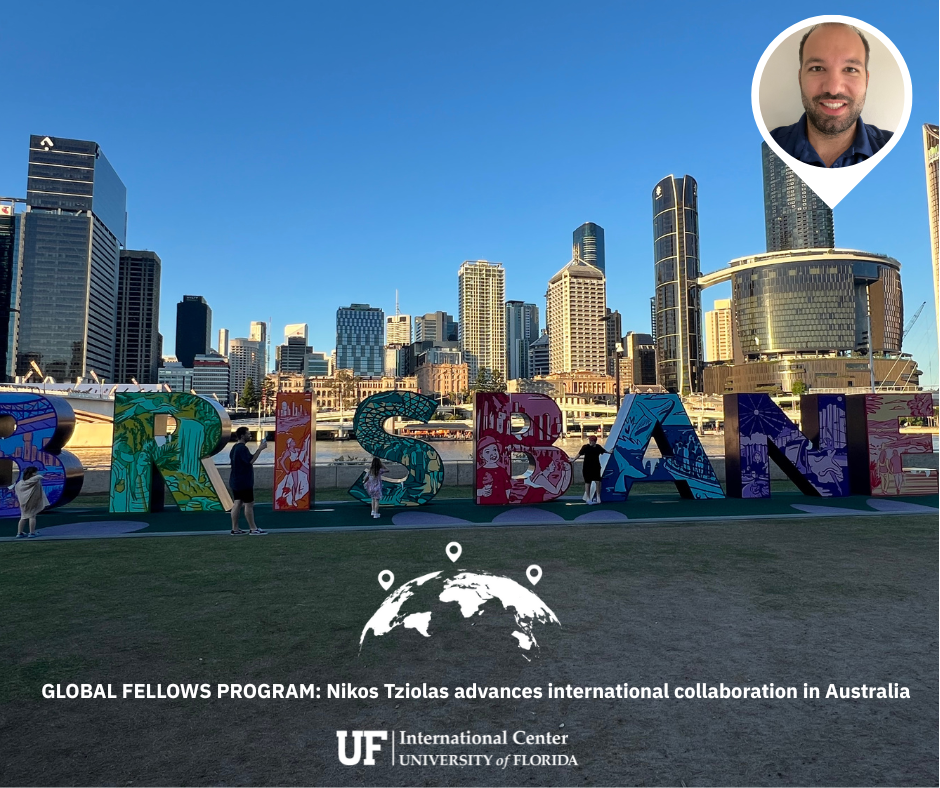By: Aghane Antunes
Nikos Tziolas, assistant professor of soil, water, and ecosystem sciences at the Southwest Florida Research and Education Center (SWFREC), part of the UF Institute of Food and Agricultural Sciences (UF/IFAS), recently traveled to Brisbane, Australia, with support from the UF International Center’s Global Fellows Program. His trip exemplifies how the program empowers faculty to build international partnerships that spark innovative research and open new avenues for international collaboration.
The focus of Dr. Tziolas’s trip was to collaborate with the renowned Digital Soil Mapping group at the University of Sydney, led by Professor Budiman Minasny. As pioneers in the emerging field of soil security, the group has advanced digital soil science through methodological innovations and global partnerships.
“This direct collaboration will enable the development of strong synergies, facilitate joint research activities, and enhance our competitiveness in securing international projects,” said Dr. Tziolas. “Australia’s diverse agroecosystems and varied agricultural policies provide a unique living laboratory for testing and validating soil monitoring methodologies across different contexts, opportunities that cannot be replicated elsewhere.”
During the visit, Dr. Tziolas engaged in meetings and fieldwork at the University of Sydney, exploring topics such as AI integration, soil biodiversity, soil security, and decentralized approaches to soil spectroscopy. He also participated in IGARSS 2025, the IEEE International Geoscience and Remote Sensing Symposium. At this flagship conference, he chaired the session Artificial Intelligence Advancements for Optimizing Soil Health Monitoring and Accessibility. Discussions there spotlighted how emerging AI and geospatial technologies are reshaping global mapping and environmental monitoring, made especially timely by the recent release of groundbreaking platforms such as Google AlphaEarth, a breakthrough AI model that compresses massive Earth observation into compact, high-resolution data.
The trip generated several concrete outcomes, including preparation of new funding proposals, expansion of the research scope into related thematic areas, opening opportunities for broader collaboration within the university, and identification of a promising postdoctoral candidate.
Reflecting on the Global Fellows Program, Dr. Tziolas emphasized its impact: “The program brought together faculty and experts from diverse backgrounds, creating a valuable space for exchanging ideas and gaining fresh perspectives on international research and high-impact practices. It encouraged me to rethink how to integrate stakeholder participation and co-design into my work. The workshops offered practical insights that I’ve already begun applying to strengthen the global relevance of my research.”
The Global Fellows Program, managed by UFIC’s Office for Global Research Engagement (OGRE), provides $5,000 seed grants to UF faculty to support international research trips, collaboration with scholars abroad, and access to global resources. Interested in applying? The call for the 2026 cohort is now open! https://internationalcenter.ufl.edu/globalfellows

